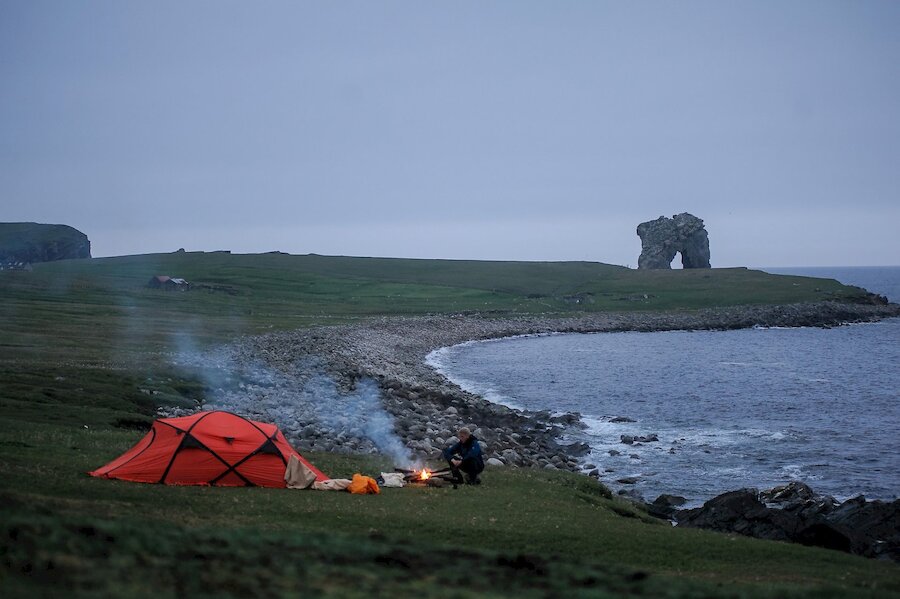Motorhomes and overnight parking in Shetland
Wild camping in a tent is permitted under Scotland’s access laws, but these rights do not extend to motor vehicles. If you are travelling by motorhome or campervan, please follow the guidance below to ensure you park responsibly and help protect Shetland’s precious natural environment.
1. Permission from landowners
Parking a motorhome or caravan on private land requires the landowner’s consent. Some land managers may be relaxed about short stays, while others are not. If you’re unsure, it’s always best to find someone to ask – even if the land feels remote.
2. Public laybys and car parks
Overnight stays in public laybys or designated car parks are sometimes tolerated, provided that:
- You remain inside your vehicle.
- No awnings, chairs, tables or other camping equipment are set up outside.
- You respect any signage such as “no overnight parking”.
- Access for other vehicles, farms or emergency services is never blocked.
Aim to arrive late, depart early, and leave no trace.
3. Be self-contained and responsible
Only self-contained vehicles (with onboard toilet and waste facilities) should consider overnight parking outside a site. All waste, including greywater, must be disposed of at proper facilities. Please note that the Shetland Islands Council does not provide disposal points for toilet or grey water waste. The best option, if you are staying outside a formal site, is to approach the nearest campsite and ask to use their facilities. Many sites will allow this for a small fee. Or you can contact Aquila, a waste management company based six miles north of Lerwick, which should be able to help (+44 (0)1595 840431).
You must take all rubbish with you, keep noise to a minimum and show consideration for nearby residents, livestock and wildlife. Open fires are strictly prohibited – Shetland’s moorland can ignite quickly, and even a small fire poses a serious risk.
4. Keep it short and sensible
Stay no more than one or two nights in the same location unless you have clear permission. Choose hardstanding surfaces such as gravel or tarmac, avoid soft ground, and never park in fields, on crops or near sensitive habitats.
5. Use campsites whenever possible
Shetland has several excellent caravan and camping sites with electric hook-ups, fresh water and waste disposal points. These sites also support local communities and businesses. If in doubt, please choose one of these formal sites.
